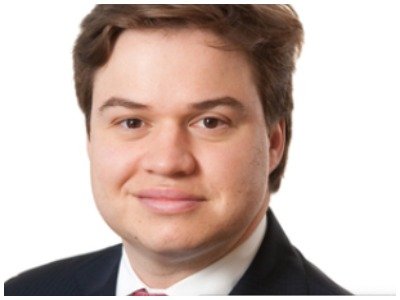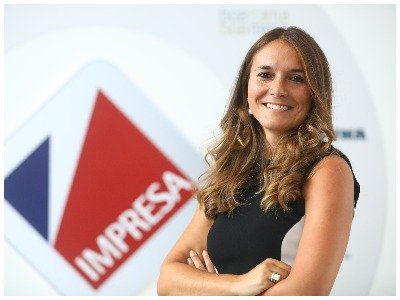Ricardo Caupers: “I see investment opportunities in the logistics and transportation sector”

The world of Private Equity is often percieved as a club. You are either in or out. Iberian Lawyer had the pleasure of interviewing one of the few Portuguese expats currently residing in London, with a senior role in this space. Ricardo Caupers is a managing director at CPP Investments, a Canadian Crown corporation established to oversee and invest the funds contributed to and held by the Canada Pension Plan, with 519.6 billion CAD of assets under management. Caupers shares with us his career to date, which has taken him from Lisbon to New York and London, how the Private Equity market has changed during this period, and where he sees the current investment opportunities in Iberia
 You began your career in Portugal at the Boston Consulting Group where you spent ten years. How was that experience for you?
You began your career in Portugal at the Boston Consulting Group where you spent ten years. How was that experience for you?
I had a fantastic time at BCG both from a professional development standpoint as well as from a personal growth perspective. I initially spent two years working in Portugal and Spain; I later rejoined in New York after attending business school. BCG enabled me to develop my strategic thinking, communication and project management skills which later proved quite important when I transitioned to principal investing.
What led you to move to London and transition into Private Equity/Investment Management?
After spending seven years in the US, I felt it was the right time to come back to Europe to start a family and, in parallel, to transition from an advisory role to principal investing. While my experience in New York was extremely rewarding from a professional perspective, allowing me to work with some of the largest companies in the world, I didn’t see myself raising children in the US. I took the relocation to London as an opportunity to also explore a move to Private Equity. It wasn’t easy as I had neither prior professional experience in the UK nor principal investing (or even M&A advisory) track record. Given this, it became critical to develop a very good understanding of the range of investment strategies pursued by Private Equity funds. I took close to a year to meet a large number of people in a variety of investment firms, from large cap LBO ones to early stage venture capital. In that process, I concluded that while my profile did not fit well with investment strategies such distressed investing, it did allow me to pursue other strategies such as growth equity.
When you arrived in London in the fall of 2007, as the credit crisis started to emerge, how challenging was it?
The 2002-2006 period in New York was a golden one as the city rose from the burst of the dot-com bubble as well as the massive impact of the September 11 terrorist attacks to come back even stronger. The recovery was driven by the finance sector, which is the heart and soul of New York’s business activity. Private Equity investment was one of the contributors to that dynamic, benefitting from the increased availability of debt financing with very attractive terms driven by the actions of the Federal Reserve to lower interest rates from 6.5% in mid-2000 to 1% in mid-2003. The move to London in late 2007 coincided with the early days of the financial crisis. The uncertainty during that period definitely made my transition to Private Equity harder. There were plenty of cases of recruitment processes by investment firms that were put on hold or cancelled. People often discount the impact luck, being in the right place at the right moment, has in one’s career. While I worked hard to explore opportunities, I certainly recognize that I was lucky to get an offer to join a growth equity fund in late 2008.
How would you compare the business environment in the UK to Portugal?
The business environment in the UK vis-à-vis Portugal is characterised by a combination of the larger scale of its economy, the lower level of government intervention, the strong role of London in the global financial markets and the international diversity of its businesses and workforce. The larger scale of the economy enables the creation of much bigger companies which makes it easier for them to leverage that scale in their international expansion than what is the case for Portuguese businesses. Government intervention in business is mainly though regulation, much less so than through direct involvement in business activities as is the case in Portugal. The easy access to financial markets in London creates significant benefits in terms of options, flexibility and cost of funding for British companies. Finally, the strong presence of companies and talent from North America, Continental Europe and Asia-Pacific creates a more competitive environment which results in stronger companies.
How would you summarise the experience of living and working in London during the last 12 years?
It has been a roller coaster! If you had told ten years ago that I would be living in London with the UK no longer in the European Union and with more than one year mostly working from home, I would not have believed it. That aside, it has been a very rewarding professional experience with exposure to and involvement in situations that are far away from my student days in Lisbon, such as the recent IPO of a company in the NASDAQ. It is also amazing to raise two children in an environment that mixes a very different education system from the Portuguese one (for example, my son is learning Ancient Greek and my daughter plays netball) with such a diverse community of friends. Nevertheless, I increasingly subscribe to that ambivalent feeling best expressed by Tom Jobim regarding New York and Rio de Janeiro, which I would paraphrase as “living in London is great but sucks; living in Lisbon sucks but is great”.
How has the Private Equity market changed during this period?
Private Equity has experienced tremendous growth over the last decade. According to McKinsey, between 2010 and 2020, private markets assets under management grew $4 trillion, an increase of 170 percent. Fundraising by Private Equity firms has continuously grown as instutions such as pension funds, sovereign wealth funds and university endowments have steadily raised their target allocations to private markets. As the industry has scaled up it has also evolved. One of the key trends in fund allocation within Private Equity over the last ten years has been the growing share of capital accounted for by the top buyout funds. Data collected by Preqin shows that megafunds of $5 billion or more captured more than half of the total amount raised by Private Equity funds in 2019, while the share raised by funds below $1 billion was the lowest in the last 15 years. This trend has been coupled with evolution of large cap fund managers into large-scale private asset managers, many of which have gone public, such as KKR, Carlyle and Blackstone. This points to a maturing industry in which the big get bigger by using benefits of scale to take an increasing proportion of assets under management. The massive growth in assets under management, coupled with a long period of very low interest rates, has resulted in a significant increase in asset prices in Private Equity, which has endured, and even further been accentuated, through the recent Covid-19 crisis, with large buyout multiples at a peak. Finally, two other trends that have become stronger and are expected to only increase in importance are the focus on technology investments and on sustainability and ESG, including both climate change as well as diversity and inclusion.
You are now a managing director in the Direct Private Equity group at CPP Investments, can you describe what a typical day looks like?
In my current role, I have sector and regional coverage responsibilities: I lead our Business Services sector team across Europe and I am also responsible for coverage of all our intermediary and advisor relationships in Southern Europe (Italy, Portugal and Spain). A significant part of my time is spent in deal origination activities which typically consist of meetings with owners and senior managers of target companies, M&A advisors and potential investment partners across Europe. When working on a live transaction, my main activities are conducting meetings with the management team of the target company, reviewing diligence materials and preparating for and participating in diligence sessions covering commercial, financial, operational, legal and ESG topics, holding valuation discussions with our M&A advisors, and leading the deal team in the preparation of internal materials to support discussions with our Investment Committee as well as leading those discussions.
You joined CPP Investments just before the COVID-19 pandemic began to spread in Europe, can you summarise the last 15 months? How did the pandemic affect your deal making process?
Overall, we adapted quite well to the changes brought about by the COVID-19 pandemic, particularly moving to a remote work environment. As most other Private Equity investors, when the pandemic hit Europe in March last year, our priority became to make sure that all of our portfolio companies reacted quickly to cope with the impact of the reduced economic activity and social mobility on their revenue, margin, cash flow and liquidity position. As we approached the summer time, our focus shifted to more offensive moves both in terms of M&A opportunities for our portfolio companies as well as new investments. In regards to new investments, while we the transition to virtual due diligence was fairly smooth, we found relationship building and management in a purely remote environment challenging.
Where do you see the current opportunities in Iberia and which sectors will thrive?
Within the business services landscape in Iberia, I see investment opportunities in the logistics and transportation sector as supply chains get reconfigured to reduce the distance between production and consumption, retail becomes increasingly digital and companies take action to reduce their impact on the environment. There also growing opportunities in environmental services, from companies providing optimisation and maintenance of solar and wind park equipment to businesses providing energy efficient solutions to residential and commercial buildings.
What do you miss the most about Portugal?
Three things: the people, the weather and the food. The authenticity of the Portuguese people. The beautiful light of the Portuguese sky. The flavors of the Portuguese food (in particular seafood). You can take the Portuguese out of Portugal but you can’t take Portugal out of the Portuguese!
By Michael Heron
To read the full interview on issue number 109 click here.












